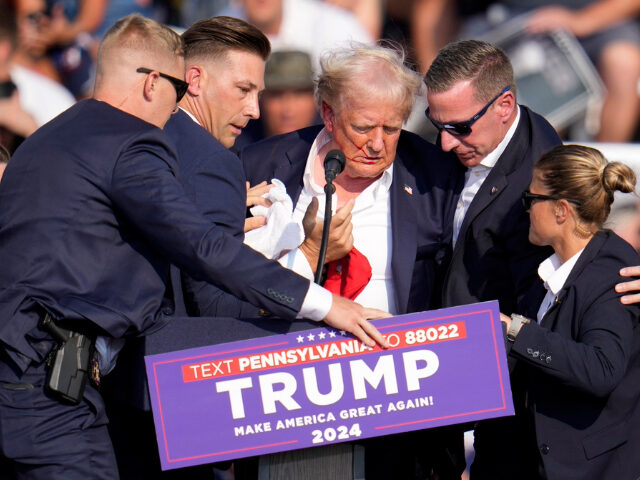Whistleblowers have claimed that the majority of agents assigned to protect former President Donald Trump on the day he survived an assassination attempt were not even Secret Service personnel but were Department of Homeland Security (DHS) personnel who only underwent a short online training session.
Sen. Josh Hawley (R-MO), a member of the Senate Homeland Security and Governmental Affairs Committee, said multiple whistleblowers informed him of shocking training failures that led to Thomas Matthew Crooks being able to fire off multiple rounds at Trump and the crowd at the July 13 Butler, Pennsylvania, campaign rally.
RELATED — Defiant: Bloodied Trump Pumps Fist to Crowd After Shooting at Rally
Video Source: C-SPANIn a Tuesday evening interview on Fox News’s Jesse Watters Primetime, Hawley said the former president was guarded by DHS agents who only went through “a two-hour online webinar.”
“And I’m told that half the time, the sounds to the webinar didn’t even work,” said the senator, who demanded a full-scale investigation into the shooting the day after it occurred.
“So, think about this: The former president of the U.S. … is sent out on stage. Most of the people there are not trained; they’re not qualified. They only got a webinar training, and even that didn’t work,” Hawley continued. “It is absolutely outrageous.”
The Republican also blasted the Secret Service and FBI for withholding important facts about Crooks’ attack.
“The only reason we have this information is because of whistleblowers,” he told the Fox News host.
Hawley has previously claimed that whistleblowers with direct knowledge of the assassination attempt came to his office to reveal that the rally was considered a “loose” security event.
In a July 19 letter to DHS Secretary Alejandro Mayorkas, the senator listed some security failures that allegedly occurred that day.
“For example, detection canines were not used to monitor entry and detect threats in the usual manner. Individuals without proper designations were able to gain access to backstage areas,” he explained. “Department personnel did not appropriately police the security buffer around the podium and were also not stationed at regular intervals around the event’s security perimeter.”

COMMENTS
Please let us know if you're having issues with commenting.